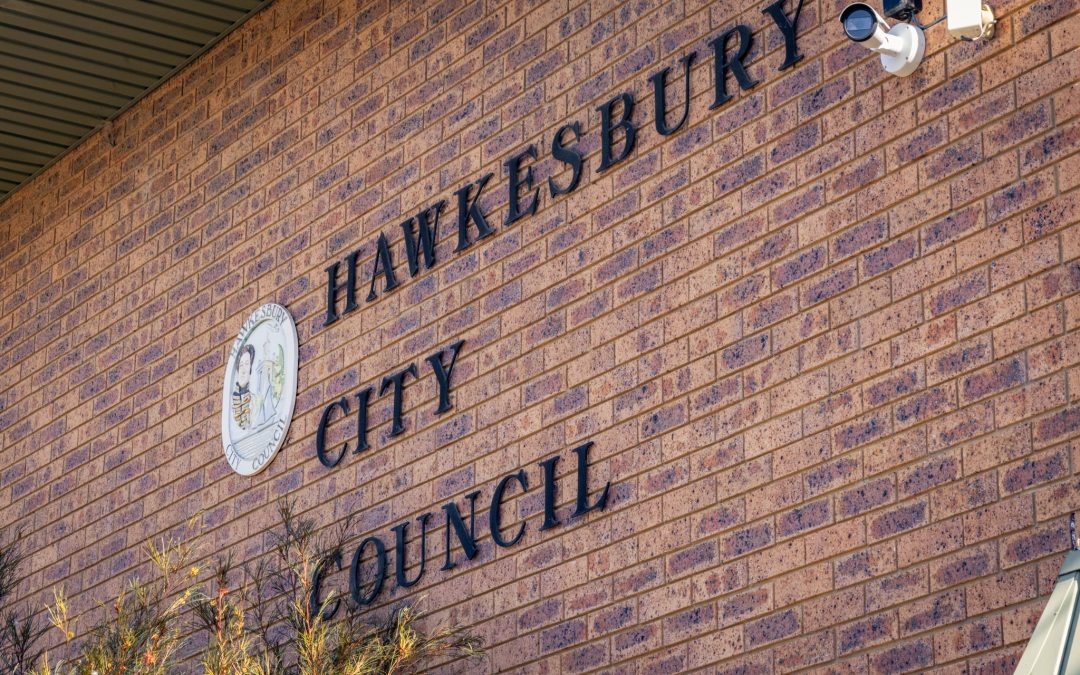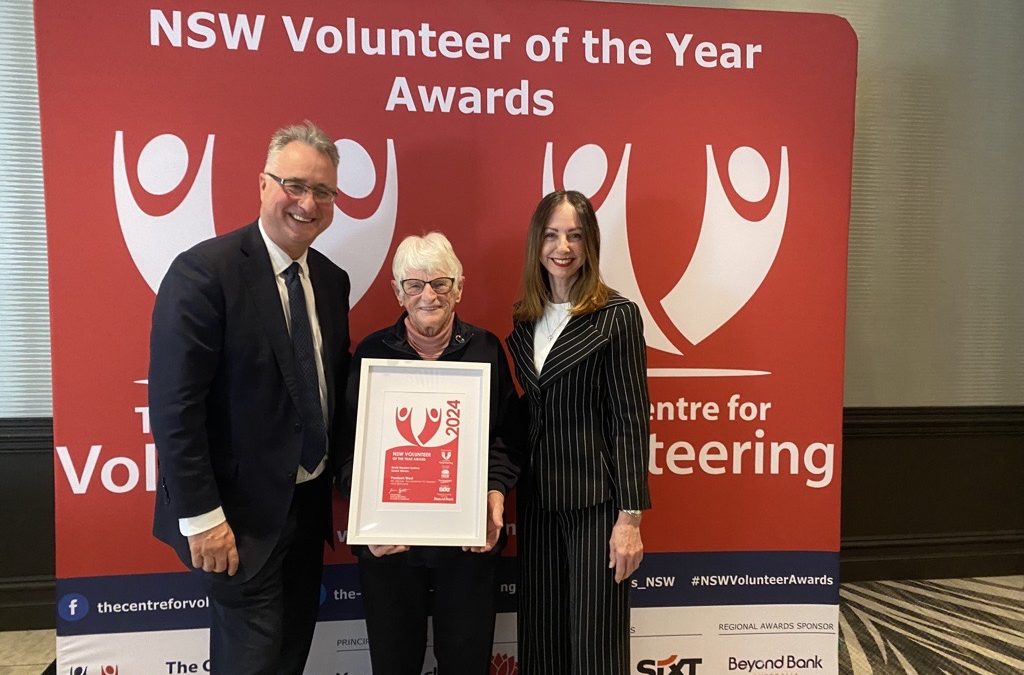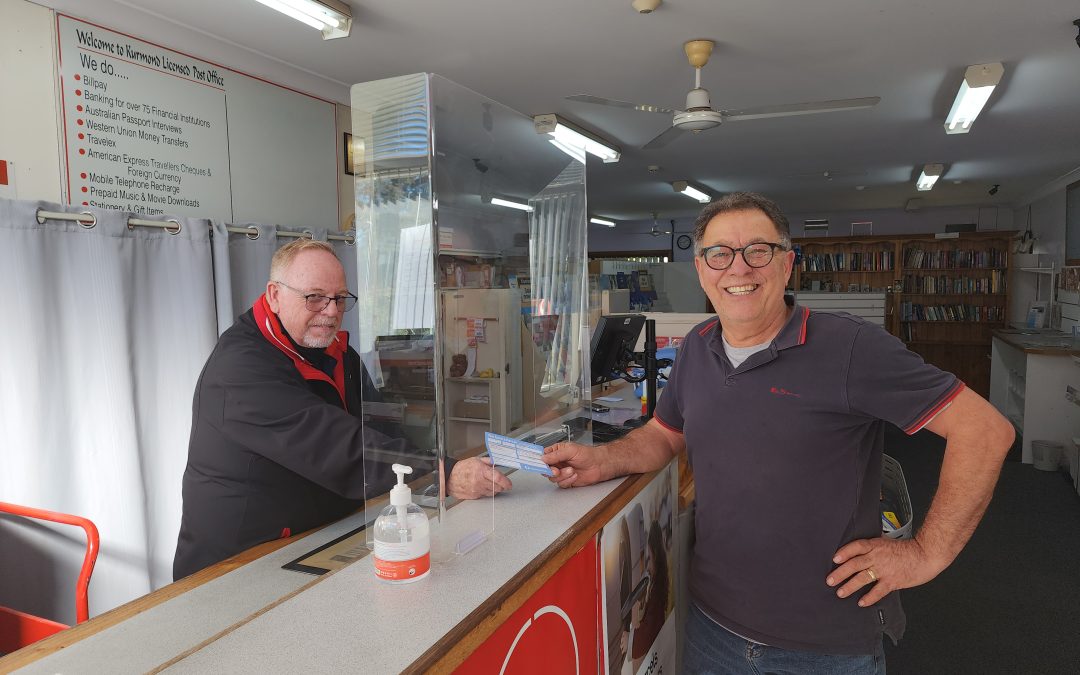Hawkesbury Post contacted all...


Hawkesbury Post contacted all...

In a heartwarming recognition of community...

After more than two decades of dedicated service, the...
Malcolm Turnbull
More than 220 years ago, my forebear, John Turnbull, his wife Ann Warr and their children settled on the Hawkesbury River. Together with their neighbours, they built the Ebenezer Chapel in 1809 and it is today the oldest church building in Australia.
We have visited Ebenezer many times over the years, and always the solemnity and warmth of that family history moves us to remember and respect the pioneers who built it, and the hardships they endured.
The bicentenary celebrations were wonderful in 2009, but the most memorable visit for me was a Turnbull reunion around that time. As we turned up we saw that everyone was being given name tags with a different coloured ribbon depending on which child of John and Anne Turnbull they were descended from. As we approached, the family genealogists’ eyes lit up, as they handed us name tags with two coloured ribbons. They had discovered we were descended not just from one Turnbull son, William Bligh, but by a longer and more circuitous route, another one, Ralph, as well.
So family, history, tradition are all bound up for me in the Hawkesbury. It is part of me and of so many people who live in the Hawkesbury region today.
But when our forebears arrived they were met by the local residents – aboriginal men and women – whose families had been there for 60,000 years, time out of mind.
The Durag people, the Darkinjung people and the people of the Eora nations have a deep connection to this region since time immemorial.
Their connection with the land, their ancient history in this land, was not only omitted from our Constitution in 1901, they were specifically excluded. The 1967 referendum reversed this exclusion, but it didn’t provide the recognition in our nation’s founding document.
I will be voting YES in the referendum on the Voice.
Constitutional recognition of Indigenous Australians is long overdue, and on 14 October our nation has a chance to finally get this done.
The Uluru Statement from the Heart was the product of a series of long consultations, where Indigenous Australians resolved that they wanted constitutional recognition to take the form of an entrenched Indigenous advisory council to be called the Voice.
Since then this particular amendment has been the singular focus of the constitutional recognition movement. If this is the form of recognition most Indigenous Australians want, the rest of us need a good reason to say No.
Back in 2017 when this idea was new and lacked detail, my government did not support it. We believed it had no chance of success in a referendum, with the history of constitutional reform in Australia showing any proposal faced with concerted opposition has failed. However, the Voice could defy history; it is winnable, but it will require people who are undecided to vote YES.
Our other major concern was that the Voice would create an institution in the Constitution the qualification for which was something other than Australian citizenship. For me, as a republican Prime Minister, this was particularly important. I believe our head of state should be one of us; an Australian citizen, not whichever English aristocrat happens to be the King or Queen of the United Kingdom.
I have wrestled long and hard with this issue of constitutional principle, and I have concluded that while the Voice amendment is not entirely consistent with my egalitarian, republican values nonetheless we are better off supporting it.
The arguments for a Voice are obvious; of course Governments and Parliaments should consult with and be advised by Indigenous Australians on decisions that affect them. In my own Government I was inspired by Dr Chris Sara’s advice – do things with Indigenous Australians not to Indigenous Australians.
Our Indigenous Policy Committee of Cabinet ensured that all ministers and departments paid attention to Indigenous advancement – not just the Indigenous Affairs officials. Every meeting of that committee began with a presentation from and discussion with the co-chairs of the Indigenous Advisory Council, Chris Sara and Andrea Mason. They had regular and direct access to cabinet.
So I would expect the Voice would operate in a similar way but with one very important difference. It would have greater standing and authority because it was not a council of Indigenous Australians chosen by government but rather, chosen by Indigenous Australians. Its credibility will depend on the quality of its advice but also on how many Indigenous Australians participate in that choice and whether Indigenous Australians overall feel the Voice truly represents them. While many Council members were connected to their communities, there was also no structural link that allowed the members of the Council formally to hear the views of local and regional people, which is the major difference with the current Voice proposal.
So the real issue is not whether there should be a Voice, but whether it should be entrenched in the Constitution. This will mean that it cannot be abolished by Parliament as ATSIC was. But it won’t mean that governments or parliament must follow its advice. It will not have a right of veto, but it will have considerable influence in matters relating to Indigenous Australians. As Prime Minister Albanese observed recently it would be a very brave government that ignored its advice on a matter relating to indigenous affairs.
The scares and diversions whipped up over the Voice have been utterly predictable. But let me deal with a few of them.
Will the Voice give advice on the date of Australia Day? I am sure it will recommend the date be moved. So what? That’s hardly a novel suggestion. What about other matters? Some have suggested it could offer advice on defence. Well it might. But why would the views of Indigenous Australians on AUKUS carry more weight than anyone else’s let alone on the Copyright Act or industrial relations?
The Voice will be most persuasive when it gives advice on matters directly relating to the welfare and advancement of Indigenous Australians. This is what the Indigenous people in local and regional communities will expect it to be dealing with, and this will make it an opportunity for better government, not a threat to it. The Voice is intended to be powerful. It seeks to address what the Uluru Statement from the Heart called the “trauma of powerlessness”. It should be very influential. But its influence will be greatest when it is speaking on matters central to the advancement of Indigenous Australians.
My Government’s Indigenous Advisory Council was chosen by the government. The members had no democratic mandate from Indigenous Australians. They did not lack expertise, or goodwill or commitment to help their communities. What they lacked was a clear democratic mandate from their own people.
The Uluru Statement from the Heart also called for Treaty, but this is not what Australians are being asked to vote on at the referendum. The establishment of a Voice will not deliver a Treaty. It may make it more achievable. Treaties are being negotiated at State and Territory levels already. They take time, careful and respectful consultation and negotiation. But whatever the Voice may propose, the only people that can commit the Commonwealth of Australia to any Treaty are the members of its Parliament, elected by all Australians.
All sides of the Voice debate seek to draw lessons from the 1999 Republic referendum. So I will just share one. Do not allow the perfect to be the enemy of the good.
The Voice delivers recognition and respect to Indigenous Australians in the manner they have sought. On October 14 we can together bend the arc of history a little further towards justice by voting YES.
Malcolm Turnbull is a former Prime Minister of Australia